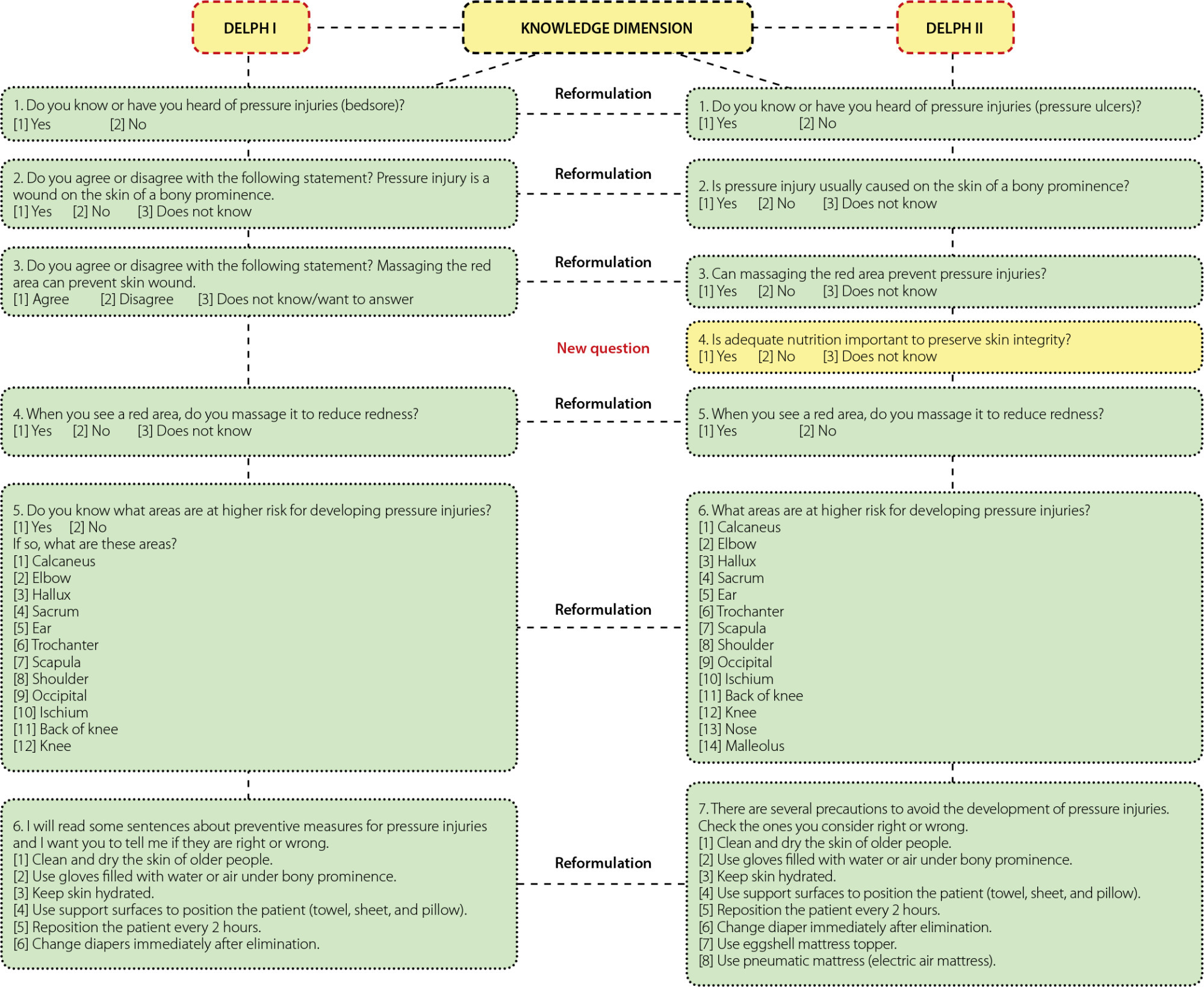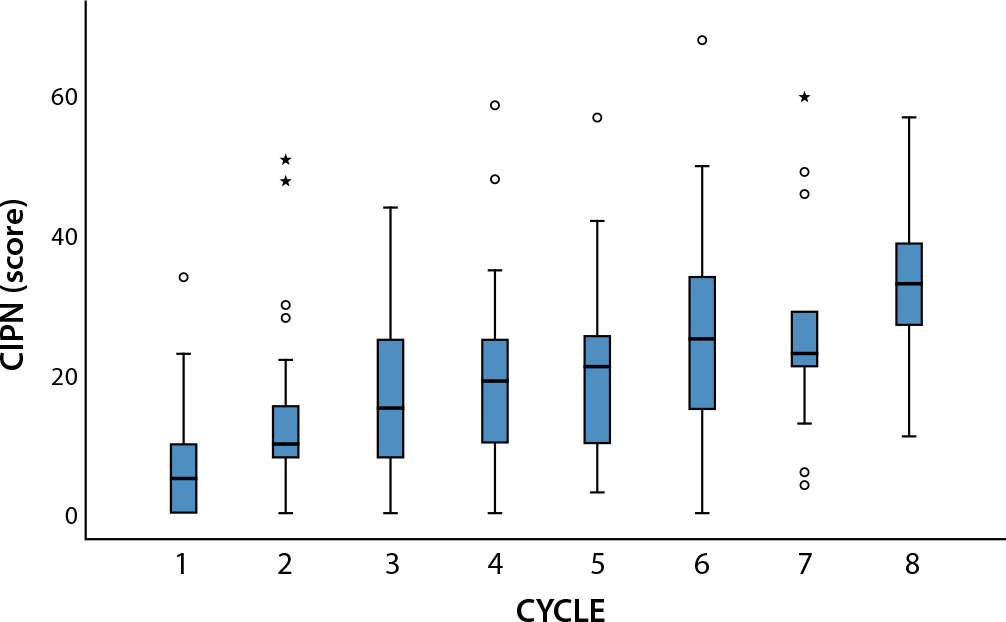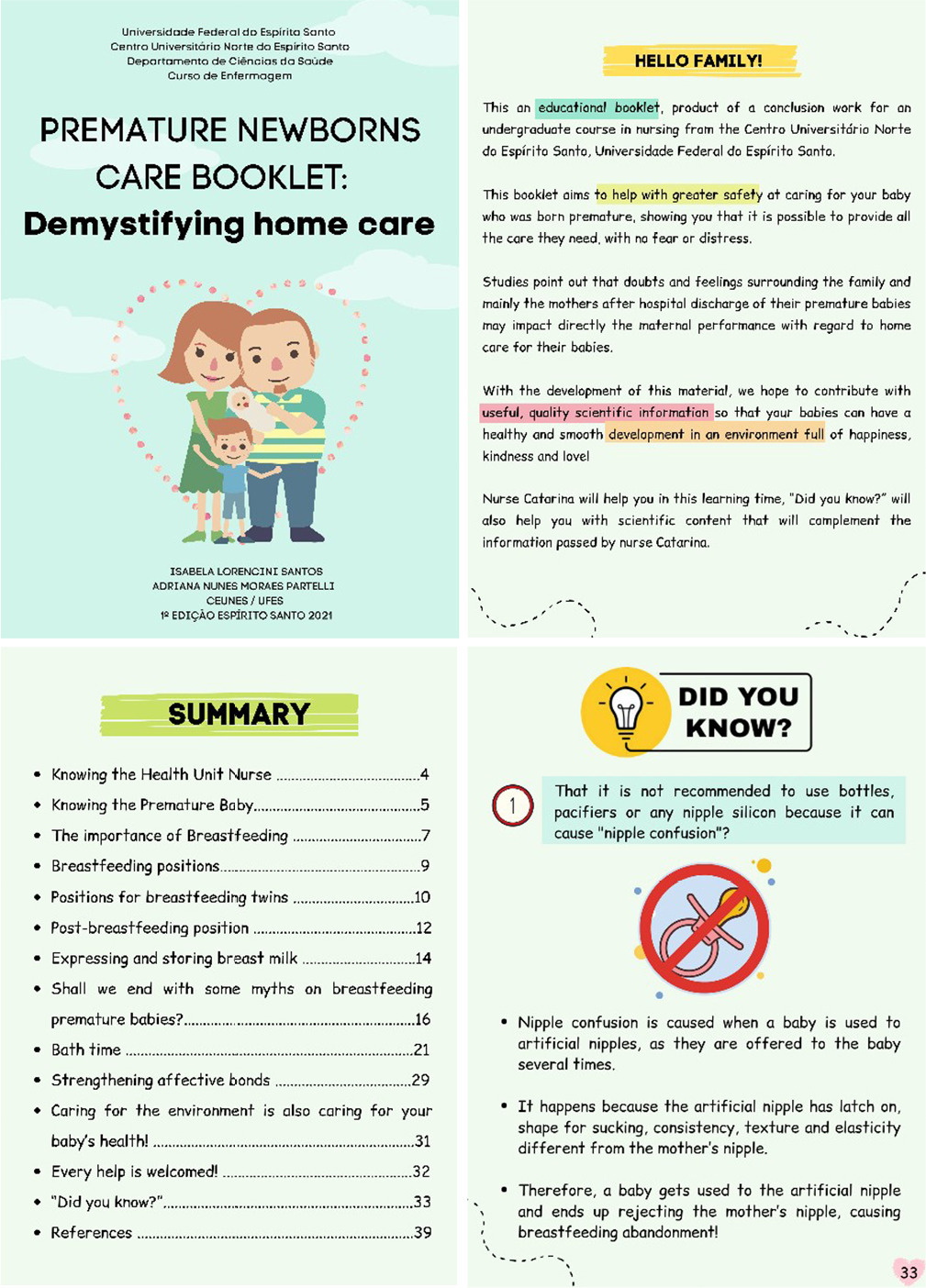-
ORIGINAL ARTICLE02-03-2023
Quality of life and satisfaction of students with auriculotherapy in the covid-19 pandemic: a quasi-experimental study
Revista Brasileira de Enfermagem. 2023;76:e20220522
Abstract
ORIGINAL ARTICLEQuality of life and satisfaction of students with auriculotherapy in the covid-19 pandemic: a quasi-experimental study
Revista Brasileira de Enfermagem. 2023;76:e20220522
DOI 10.1590/0034-7167-2022-0522
Views0See moreABSTRACT
Objectives:
to evaluate the quality of life before and after the application of auriculotherapy and the satisfaction of university students with the treatment during the covid-19 pandemic.
Methods:
quasi-experimental study conducted with 44 students in a University Health Center. The intervention consisted of ten sessions of auriculotherapy focusing on emotional changes with quality of life assessment before and after treatment. The study also investigated the satisfaction concerning the intervention.
Results:
predominated among the students: women, from health courses, in use of psychotropic drugs and complaining of emotional changes. There was a statistically significant increase in all domains of quality of life, and students were satisfied with the treatment.
Conclusions:
auriculotherapy improved the quality of life of university students during the covid-19 pandemic, and the level of satisfaction with the treatment was high.
-
ORIGINAL ARTICLE02-03-2023
Factors associated with the safety culture of patients under dialysis in the context of the COVID-19 pandemic
Revista Brasileira de Enfermagem. 2023;76:e20220280
Abstract
ORIGINAL ARTICLEFactors associated with the safety culture of patients under dialysis in the context of the COVID-19 pandemic
Revista Brasileira de Enfermagem. 2023;76:e20220280
DOI 10.1590/0034-7167-2022-0280
Views0See moreABSTRACT
Objectives:
to assess the factors associated with the safety culture of patients under dialysis in the context of the COVID-19 pandemic.
Methods:
a cross-sectional and analytical study, carried out in Minas Gerais, with 134 professionals from three dialysis services. The Hospital Survey on Patient Safety Culture, adapted for Brazil, was used.
Results:
only variable type of management was associated with the highest percentage of positive response in public and private services. Patient safety was rated as good by 55.7% of respondents. In dimension assessment, the public service presented one strength and five weaknesses, the private service did not present weak areas, and the philanthropic service presented a weakness. The priority areas for improvement actions are represented by dimensions “Nonpunitive response to error” and “Staffing”.
Conclusions:
interventions should consider the type of service management, as it is a factor associated with safety culture.
-
ORIGINAL ARTICLE02-03-2023
Remote teaching during the COVID-19 pandemic: repercussions from professors’ perspective
Revista Brasileira de Enfermagem. 2023;76:e20220172
Abstract
ORIGINAL ARTICLERemote teaching during the COVID-19 pandemic: repercussions from professors’ perspective
Revista Brasileira de Enfermagem. 2023;76:e20220172
DOI 10.1590/0034-7167-2022-0172
Views0See moreABSTRACT
Objectives:
to understand the repercussions of teaching work in remote teaching during the COVID-19 pandemic in Higher Education Institutions in northern Santa Catarina.
Methods:
a qualitative participatory action research, based on Paulo Freire’s theoretical-methodological precepts. Seventeen health professors participated in two Virtual Culture Circles held in the first half of 2021.
Results:
six generating themes emerged for discussion, which aroused in participants’ feelings and perspectives regarding the remote teaching process in the pandemic context, with an emphasis on the connectivity theme, which generated dialogue through reports of personal experiences.
Final Considerations:
the pandemic has had repercussions in sectors such as health and education. Professors talked about their experience in creating, recreating and adapting to remote teaching and the challenges facing the teaching-learning process, listing the worsening of mental health and the need to learn new digital technologies.

-
ORIGINAL ARTICLE01-30-2023
Pressure injury prevention in older people: construction and validation of an instrument for caregivers
Revista Brasileira de Enfermagem. 2023;76(1):e20210930
Abstract
ORIGINAL ARTICLEPressure injury prevention in older people: construction and validation of an instrument for caregivers
Revista Brasileira de Enfermagem. 2023;76(1):e20210930
DOI 10.1590/0034-7167-2021-0930
Views0See moreABSTRACT
Objectives:
to construct and validate an instrument to assess the knowledge, attitudes, and practices related to pressure injury prevention among caregivers of institutionalized older people.
Methods:
this is a three-stage methodological study that consisted of instrument construction, analysis by experts, and semantic and appearance analysis, with 78 participants, observing the validation process steps for psychometric instruments in the criteria of clarity and relevance.
Results:
in the Delphi I round, the validity index of the general content in the clarity criterion was 0.66, in relevance 0.85, and the Kappa value was >0.76. In Delphi II, clarity was 0.95, relevance 1.00, and the Kappa value was >0.97.
Conclusions:
this is a valid instrument in terms of content and appearance, which allows further analysis of its reliability for the measurement of the constructs for which it is intended. Therefore, it can be considered a tool for care management in pressure injury prevention.

-
ORIGINAL ARTICLE01-30-2023
Accuracy of the nursing diagnosis of ineffective airway clearance in intensive care unit patients
Revista Brasileira de Enfermagem. 2023;76(1):e20220174
Abstract
ORIGINAL ARTICLEAccuracy of the nursing diagnosis of ineffective airway clearance in intensive care unit patients
Revista Brasileira de Enfermagem. 2023;76(1):e20220174
DOI 10.1590/0034-7167-2022-0174
Views0See moreABSTRACT
Objectives:
to analyze the accuracy of the clinical indicators of ineffective airway clearance in adult intensive care unit patients.
Methods:
diagnostic accuracy study, performed in the intensive care unit of a university hospital in northeastern Brazil. The sample consisted of 104 patients hospitalized between June and October 2019.
Results:
the prevalence of ineffective airway clearance was 36.54%. The indicators with high specificity included absence of cough (0.8326), orthopnea (0.6817), adventitious breath sounds (0.8175), and diminished breath sounds (0.8326). The clinical indicators with high sensitivity and specificity were alteration in respiratory rate (0.9999) and alteration in respiratory pattern (0.9999).
Conclusions:
six clinical indicators provided an accurate identification of ineffective airway clearance. The clinical indicators alteration in respiratory rate and alteration in respiratory pattern were the most accurate for critical adult patients. The findings of this study contribute to accurate diagnostic inferences and to prevention of respiratory complications in these patients.
-
ORIGINAL ARTICLE01-30-2023
Adverse dermatoneurological events and impacts on daily activities of patients with gastrointestinal neoplasms undergoing chemotherapy
Revista Brasileira de Enfermagem. 2023;76(1):e20220161
Abstract
ORIGINAL ARTICLEAdverse dermatoneurological events and impacts on daily activities of patients with gastrointestinal neoplasms undergoing chemotherapy
Revista Brasileira de Enfermagem. 2023;76(1):e20220161
DOI 10.1590/0034-7167-2022-0161
Views0See moreABSTRACT
Objective:
to associate the presence and grading of adverse dermatoneurological events (peripheral neuropathy and hand-foot syndrome) and the interference in the activities of daily living of patients with gastrointestinal neoplasms undergoing systemic antineoplastic treatment.
Method:
this is a longitudinal, prospective study, using instruments to assess hand-foot syndrome and peripheral neuropathy.
Results:
there were 36 patients: 66.7% diagnosed with colon cancer and 83.2% on combination therapy. From cycle 5 onwards, all of them had hand-foot syndrome, with a majority of grade 1, unrelated to interference in activities of daily living. Regarding peripheral neuropathy, there was a moderate to strong correlation from cycle 1 of treatment.
Conclusion:
peripheral neuropathy negatively affects activities of daily living. The monitoring of dermatoneurological events by oncology nurses contributes to the clinical practice of nursing and subsidizes the development of advanced practice in the country.

-
ORIGINAL ARTICLE01-30-2023
Educational material production and validity: educational instrument for home care for premature newborns
Revista Brasileira de Enfermagem. 2023;76(1):e20210648
Abstract
ORIGINAL ARTICLEEducational material production and validity: educational instrument for home care for premature newborns
Revista Brasileira de Enfermagem. 2023;76(1):e20210648
DOI 10.1590/0034-7167-2021-0648
Views0See moreABSTRACT
Objective:
to produce and validate a booklet, based on Jean Watson’s Theory, on home care for premature newborns, based on caregivers’ experiences.
Method:
a methodological study, developed in the following stages: diagnosis of knowledge needs about home care; survey of scientific content; educational material production; and validity by judges/experts.
Results:
the literature review resulted in 19 articles. The main themes (breastfeeding, bath care, bond building, infection prevention and support network) were listed for producing the booklet “Booklet for Premature Newborns: Demystifying Home Care”. The booklet content and appearance received the overall Content Validity Index of 0.85, considered suitable within the scientific rigor of validity.
Final considerations:
the booklet produced and validated is an educational material whose main role is to provide knowledge and awaken caregivers’ autonomy in providing home care to newborns.

-
ORIGINAL ARTICLE01-30-2023
Development and validation of an instrument for the evaluation of HIV care in Primary Health Care
Revista Brasileira de Enfermagem. 2023;76(1):e20220247
Abstract
ORIGINAL ARTICLEDevelopment and validation of an instrument for the evaluation of HIV care in Primary Health Care
Revista Brasileira de Enfermagem. 2023;76(1):e20220247
DOI 10.1590/0034-7167-2022-0247
Views0See moreABSTRACT
Objective:
To develop and validate an instrument to evaluate the decentralization process of care for People Living with HIV in Primary Health Care.
Method:
Methodological study, developed in four stages: elaboration of the logical model based on the triad Structure-Process-Outcomes; development of the instrument; content validation by expert judges and technical reviewers; and semantic validation. Online questionnaires were used, and the Kappa index was used for analysis.
Results:
The instrument with 68 items and 8 factors was submitted to validation by expert judges who recommended the exclusion of 3 items and the alteration of 2 factors. In the validation by technical reviewers, 2 items were excluded and 6 factors were highlighted; the agreement index was ≥0.75. In the semantic validation, 87.3% of the judges answered “totally agree” for the items presented.
Conclusion:
The instrument is validated for its content, has 63 items and has the potential to assess the care provided for people living with HIV in Primary Health Care.

-
REFLECTION04-03-2020
Environmental health: emancipatory care challenges and possibilities by the nurse
Revista Brasileira de Enfermagem. 2020;73(3):e20180478
Abstract
REFLECTIONEnvironmental health: emancipatory care challenges and possibilities by the nurse
Revista Brasileira de Enfermagem. 2020;73(3):e20180478
DOI 10.1590/0034-7167-2018-0478
Views0See moreABSTRACT
Objectives:
to discuss challenges and possibilities for the construction of Environmental Health emancipatory care practices by the nurse.
Methods:
reflective analysis based on conceptual, theoretical, and methodological aspects of nursing care, under the emancipatory and critical perspective.
Results:
contemporary environmental issues involve complex determinants of the health-disease process. This fact requires the accomplishment of educative actions that encourage the change of environmental attitudes related to health-risk situations. In this sense, there are significant demands for emancipatory practices of primary care in Environmental Health by nurses, which need to be systematized by health and education institutions.
Final considerations:
the nurse, as an educator and social actor, should offer emancipatory practices of risk management, empowerment, and shared social and environmental responsibility, with a view to recovering an ecological well-being and social transformation, to improve environmental quality and human life.
-
ORIGINAL ARTICLE06-01-2020
Binge drinking and overweight in brazilian adults – CUME Project
Revista Brasileira de Enfermagem. 2020;73:e20190316
Abstract
ORIGINAL ARTICLEBinge drinking and overweight in brazilian adults – CUME Project
Revista Brasileira de Enfermagem. 2020;73:e20190316
DOI 10.1590/0034-7167-2019-0316
Views0See moreABSTRACT
Objective:
To verify the association between heavy episodic alcohol consumption [binge drinking (BD)] and overweight in 2,909 adults from the Cohort of Universities of Minas Gerais (CUME Project) baseline, Brazil.
Method:
Cross-sectional study in which sociodemographic, anthropometric (BMI ≥ 25 kg/m2 = overweight) and dietary intake data were collected. This study evaluated the occurrence and monthly frequency of BD (≥ 4 drinks at one time for women; ≥ 5 drinks at one time for men, in the last 30 days).
Results:
The prevalence of BD and overweight were 41.3% and 40.8%, respectively. BD increased the prevalence of overweight by 19%, and, BD exposure by ≥ 5 days / month increased it by 31%.
Conclusion:
BD on a single or multiple occasion during the month was associated with a higher prevalence of overweight. Therefore, such a lifestyle should be considered in weight gain prevention strategies.
-
ORIGINAL ARTICLE12-04-2020
“The pen is the blade, my skin the paper”: risk factors for self-injury in adolescents
Revista Brasileira de Enfermagem. 2020;73:e20200578
Abstract
ORIGINAL ARTICLE“The pen is the blade, my skin the paper”: risk factors for self-injury in adolescents
Revista Brasileira de Enfermagem. 2020;73:e20200578
DOI 10.1590/0034-7167-2020-0578
Views0See moreABSTRACT
Objective:
to describe the risk factors that influence the self-injury behavior of adolescents assisted at a Psychosocial Care Center for Children and Adolescents, according to subjects’ own perceptions.
Method:
a descriptive, exploratory, qualitative study carried out through medical records and a focus group with 07 adolescents. The statements were submitted to thematic content analysis.
Results:
in the risk factors category, four subcategories emerged: Family adversity factors; Social contagion; Adverse life events; Personal characteristics. Conflicts, lack of support, drug use in the family, meeting someone who cuts themselves, social networks, religiosity, history of sexual violence and bullying were identified as risk factors that influence self-injury.
Final Considerations:
adolescents pointed out the need for prejudice-free dialogues in schools, in health and family devices, configuring protective factors to avoid this practice that comes from several negative events throughout life.

-
ORIGINAL ARTICLE08-07-2020
Functional health literacy in older adults with hypertension in the Family Health Strategy
Revista Brasileira de Enfermagem. 2020;73:e20190848
Abstract
ORIGINAL ARTICLEFunctional health literacy in older adults with hypertension in the Family Health Strategy
Revista Brasileira de Enfermagem. 2020;73:e20190848
DOI 10.1590/0034-7167-2019-0848
Views0See moreABSTRACT
Objective:
To assess Functional Health Literacy and the associated sociodemographic, health, information sources and health media factors in older adults with hypertension assisted at the Family Health Strategy.
Methods:
A quantitative cross-sectional study with an exploratory-descriptive approach, carried out with a total of 264 older adults. A sociodemographic and health characterization instrument was used for the data collection, and another one that evaluated the Functional Health Literacy. For the analysis, a descriptive and inferential statistics were performed.
Results:
Most of the participants in the study had inadequate literacy (59.5% – 157), and the variables education, income, hospital stay and internet as a source of information are related to the averages of Functional Health Literacy.
Conclusion:
Knowing the Functional Health Literacy of older adults with hypertension and its associated factors can provide subsidies for the planning of health education strategies that, in fact, meet their health needs.
-
ORIGINAL ARTICLE12-21-2020
Knowledge and practices of nursing professionals in caring for ostomates
Revista Brasileira de Enfermagem. 2020;73:e20200018
Abstract
ORIGINAL ARTICLEKnowledge and practices of nursing professionals in caring for ostomates
Revista Brasileira de Enfermagem. 2020;73:e20200018
DOI 10.1590/0034-7167-2020-0018
Views0See moreABSTRACT
Objective:
to analyze the knowledge and practices of nursing professionals in caring for people with colostomy bag.
Method:
a qualitative and descriptive study conducted with 21 nursing professionals from a General Surgery Unit. Data collection used triangulation of techniques, based on non-participant observation, analysis of nursing records, and semi-structured interviews. Analysis followed the spiral technique assumptions.
Results:
it was possible to comprehend the theoretical and scientific knowledge that subsidize practice; identify contradictions related to statement and care in the profession’s daily work and the intervening factors, which can facilitate and/or make the nursing care process difficult.
Final Considerations:
knowledge and practices of professionals in caring for ostomates occur within work experiences, in which socialization of knowledge makes it possible to expand the perspectives of care.
-
EXPERIENCE REPORT02-05-2021
Paulo Freire’s culture circles: contributions to nursing research, teaching, and professional practice
Revista Brasileira de Enfermagem. 2021;74(1):e20190626
Abstract
EXPERIENCE REPORTPaulo Freire’s culture circles: contributions to nursing research, teaching, and professional practice
Revista Brasileira de Enfermagem. 2021;74(1):e20190626
DOI 10.1590/0034-7167-2019-0626
Views0See moreABSTRACT
Objectives:
to share the contributions of culture circles for teaching, research, and professional nursing practice, having as framework Paulo Freire’s Research Itinerary.
Methods:
this is an experience report of a culture circle, with participation of three professors and ten students, enrolled in a course of a Graduate Program in Nursing in southern Brazil. In this culture circle, a tree was built in which the roots formed the thematic investigation, the stem, coding and decoding, and the leaves, the Research Itinerary critical unveiling.
Results:
participants demonstrated empowerment of Paulo Freire’s assumptions, and building a tree made it possible to discuss in a pleasant and playful way culture circle use in teaching, research, and professional nursing practice.
Final Considerations:
the culture circle promoted reflection and action on nursing praxis, turning Freirean thoughts into something concrete and transforming realities.

-
ORIGINAL ARTICLE09-21-2020
Frailty, depression, and quality of life: a study with elderly caregivers
Revista Brasileira de Enfermagem. 2020;73:e20180947
Abstract
ORIGINAL ARTICLEFrailty, depression, and quality of life: a study with elderly caregivers
Revista Brasileira de Enfermagem. 2020;73:e20180947
DOI 10.1590/0034-7167-2018-0947
Views0See moreABSTRACT
Objective:
to analyze the relationship between frailty, depressive symptoms, and quality of life of elderly caregivers of other elderly living in high social vulnerability.
Methods:
a descriptive, correlational and cross-sectional study conducted with 40 elderly caregivers. A questionnaire to characterize elderly caregivers, the Fried frailty phenotype, the Geriatric Depression Scale (to screen depressive symptoms) and the Short-Form 6 Dimension (to assess quality of life) were used. For data analysis, Student’s t-test, ANOVA, Pearson’s χ2 and Fisher’s exact test were used.
Results:
most were pre-frail (52.5%) and had no evidence of depressive symptoms (57.5%). They presented, on average, a score of 0.76 (±0.1) in relation to quality of life. Statistical significance was observed between the average scores of quality of life with depressive symptoms (p=0.012) and frailty level (p=0.004).
Conclusion:
frail elderly caregivers with depressive symptoms had a worse perception of quality of life.
-
ORIGINAL ARTICLE02-10-2020
Mobile care service for psychiatric urgencies and emergencies: perception of nursing workers
Revista Brasileira de Enfermagem. 2020;73(1):e20180214
Abstract
ORIGINAL ARTICLEMobile care service for psychiatric urgencies and emergencies: perception of nursing workers
Revista Brasileira de Enfermagem. 2020;73(1):e20180214
DOI 10.1590/0034-7167-2018-0214
Views0See moreABSTRACT
Objective:
To understand how the nursing staff perceives the care provided to people in situations of psychiatric urgencies and emergencies in the Mobile Emergency Care Service (SAMU – Serviço de Atendimento Móvel de Urgência).
Method:
Descriptive and qualitative study conducted in the Northeast region of Brazil with 34 of the SAMU nursing workers. Data were obtained by semi-structured interviews and processed by the Thematic Analysis.
Results:
The analysis of interviews allowed the identification of three categories: mechanical practice, need for qualification and (de)humanization of care. The results showed that the care offered to users in psychiatric urgency or emergency situations is based on mechanistic and specific actions.
Final considerations:
Nursing workers perceive that the care for people in situations of psychiatric urgency and emergency in SAMU is mainly based on physical and chemical containment measures, performing a little resolute and dehumanized care and raising the need for professional qualification.
Search
Search in:
Nuvem de Tags
Adolescente (85) Atenção Primária à Saúde (239) COVID-19 (91) Criança (91) Cuidados de Enfermagem (269) Educação em Enfermagem (151) Educação em Saúde (139) Enfermagem (930) Enfermagem Pediátrica (86) Estudantes de Enfermagem (77) Estudos de Validação (131) Família (87) Idoso (208) Promoção da Saúde (99) Qualidade de Vida (104) Saúde do Trabalhador (86) Saúde Mental (145) Saúde Pública (82) Segurança do Paciente (150) Tecnologia Educacional (100)



